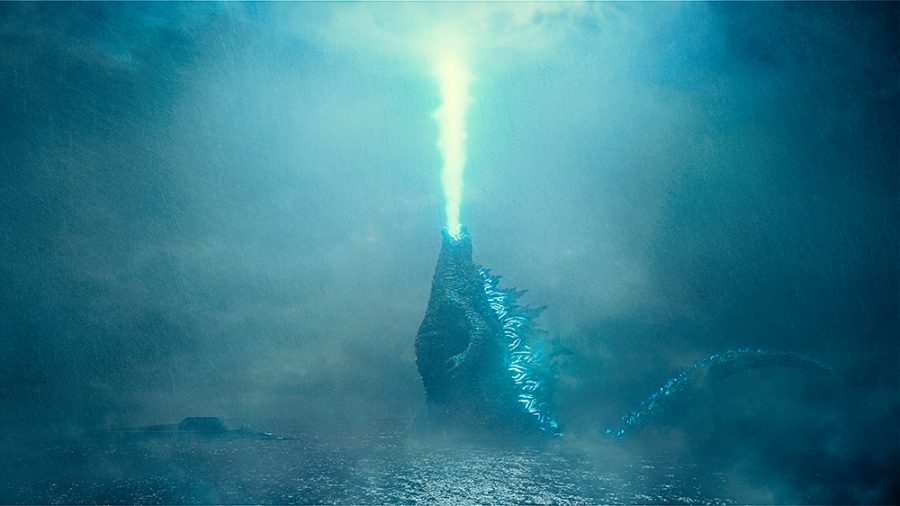Long live the king – Godzilla sequel proves the critics wrong…
Godzilla has had to work hard to prove itself triumphant during this busy period for the big screen. With the franchise reaching its 65th anniversary this year, many may suggest that monster movies are losing their touch, with similar films such as Rampage receiving less than favourable reviews. Godzilla: King of the Monsters has so far received similarly poor critic reviews, with Rotten Tomatoes giving the film a disappointing 40%, and The Guardian giving it a measly 1 out of 5 stars. However, audiences seem to tell a different story – the Rotten Tomatoes audience score is at 85%, and the film got to number 1 at the box office on its opening weekend. So just what is going on with Godzilla, and can the king rise triumphant once again as it did all those years ago?
The story of King of the Monsters is a simple one, following the Russell family, whose lives were affected by the events of the 2014 film. Mother Emma (Vera Farmiga) has teamed up with the evil Jonah Alan (Charles Dance) to release the beast Godzilla and other legendary creatures – including fan-favourites King Ghidorah, Mothra and Rodan – in order to correct the imbalance human beings have brought to the world. Fearing a repeat of Godzilla’s last battle, the government wants the creatures destroyed, and threatens to attack with military proportions. As each creature is released upon earth, it is up to father Mark (Kyle Chandler), daughter Madison (Millie Bobbie Brown) and scientists Ishiro Serizawa (Ken Watanabe), Ilene Chen (Ziyi Zhang) and Rick Stanton (Bradley Whitford) to destroy King Ghidorah, who threatens to wipe out every living creature on the planet, including Godzilla, so that he can rule the world himself.

Whilst many may believe that the story of King of the Monsters leaves a lot to be desired, with little substance besides enormous fight scenes, the visually stunning cinematic experience has a deeper meaning, in a similar way to the anti-nuclear message of the original Godzilla (1954). The story focuses on themes of environmental destruction, as the film suggests that humans are damaging the planet beyond repair, with only an event of catastrophic proportions saving the planet from further damage. The film also sees a theme of loss, as mother Emma struggles with the death of her son and is convinced by Jonah to release the creatures to prevent further killing, where in fact this causes more death and destruction than before. It is these themes that leave audiences coming away from the film feeling stunned and changed, helping to give the series its backbone.
The film also contains stunning graphics and epic cinematography, showing just how far the series has come since its beginnings in post-war Japan. The original film featured an actor in a rubber suit, stomping around a model Tokyo, while the 1970s films saw a more comedic approach with slapstick battles appealing to children – in King of the Monsters, CGI is seamlessly mixed with on-location filming and creatures created through graphics and motion capture. You can see the hard work and effort that has gone into making Godzilla: King of the Monsters a masterpiece in its own right.
Many critics suggested that the monsters have too much screen time, leaving human moments feeling lacklustre. However this is a confusing and poor criticism – the film is called King of the Monsters, and does a fantastic job of fleshing out the stories of Ghidorah, Rodan and Mothra for a general audience. Furthermore, fans criticised the 2014 entry for not having enough monster screen time, with Godzilla appearing for only 8 minutes in total. For a film about gigantic monsters, this is disappointing, and the makers of King of the Monsters did an excellent job of creating a well-balanced film this time around, with both monsters and humans receiving equal focus.
Overall, whilst there is some sense to the criticisms of Godzilla: King of the Monsters, many are unfair and have been made on uneducated grounds. Whilst some may suggest that the film is not a good experience for a general moviegoer, and was instead made for fans, newcomers will see the passion and effort that has gone into this film, and its audience reviews and early box office success reflect this. Whilst the film may be lacking a solid story in places, it has an underlying and important message that induces thought and will leave viewers intrigued by the series as a whole, and with a need to see the movies that started it all.
By Ella Farnsworth
Feature image credit: Warner Bros. Pictures

